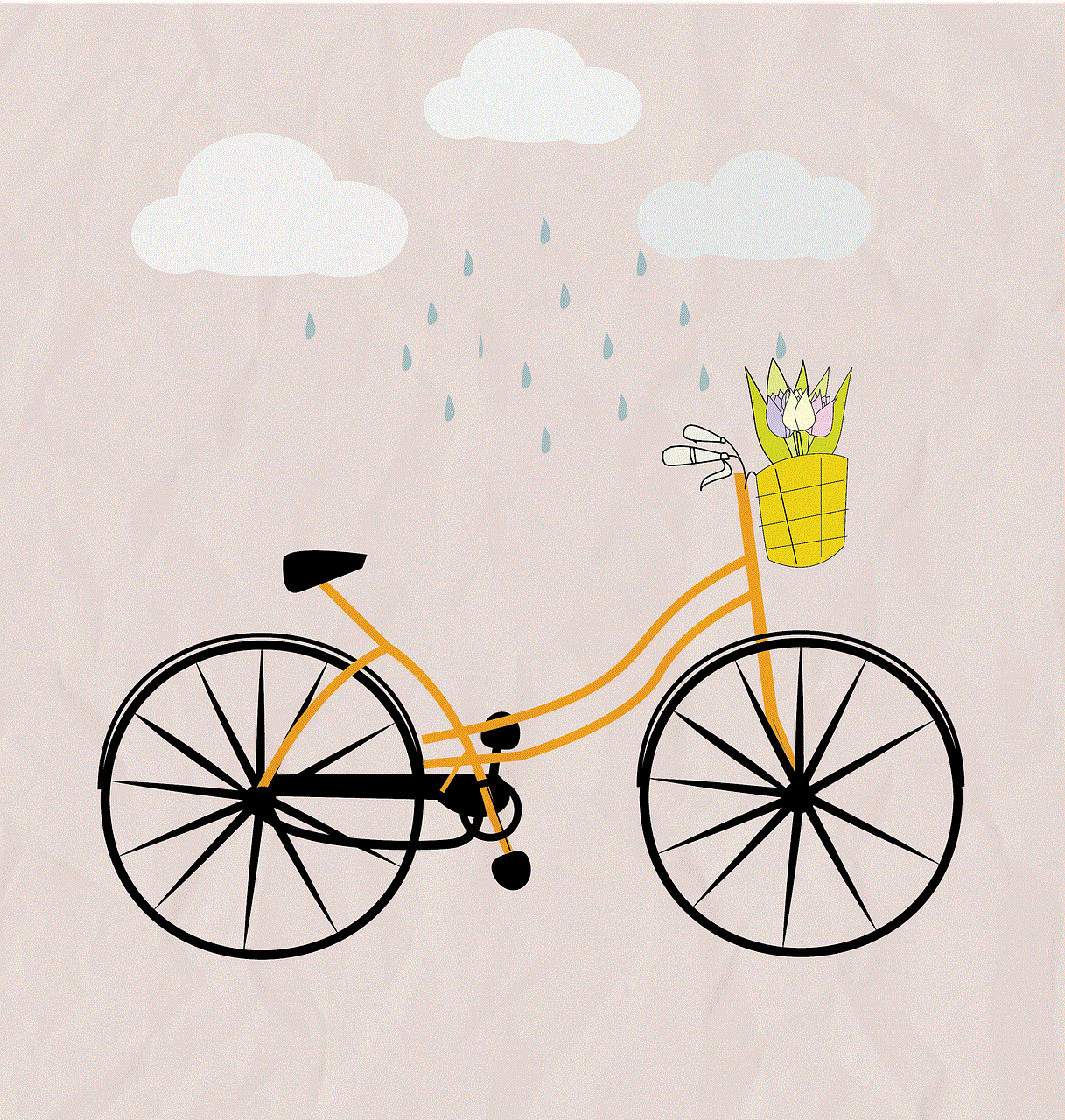how to tell who blocked you on snapchat
How to Tell Who blocked you on Snapchat
In this digital age, social media platforms have become an integral part of our lives. Among these platforms, Snapchat stands out as one of the most popular and widely used applications. With its unique features like disappearing messages and fun filters, Snapchat has gained a massive following worldwide. However, like any other social media platform, there are instances when you may wonder if someone has blocked you on Snapchat. In this article, we will explore various methods that can help you determine if someone has blocked you on this platform.
1. Understanding Snapchat Blocking
Before we dive into the methods of detecting if someone has blocked you on Snapchat, it is important to understand what blocking actually means. When someone blocks you on Snapchat, it means that they no longer want to receive any communication from you. They are essentially cutting off all contact and preventing you from interacting with them on the platform. This can be due to various reasons, such as personal conflicts or privacy concerns.
2. Signs of Being Blocked
While Snapchat does not provide a direct notification or message when someone blocks you, there are certain signs that can indicate if someone has blocked you. One of the first signs is the inability to see their Snapchat score. The Snapchat score represents the total number of snaps sent and received by a user. If you cannot see their score, it may be an indication that you have been blocked.
3. Unable to Find their Profile
Another sign of being blocked on Snapchat is the inability to find the person’s profile when searching for their username. If you have been blocked, their profile will not appear in your search results, making it impossible to view their snaps or send them messages. However, it is important to note that if the person has deactivated their account, you will also be unable to find their profile, so this method may not always be foolproof.
4. Disappearing Snaps
If you were previously able to see someone’s snaps on your Snapchat feed, but suddenly their snaps have disappeared, it could be an indication that they have blocked you. When someone blocks you, their snaps will no longer be visible to you, and any previous snaps from them will disappear from your feed.
5. Lack of Chat History
If you used to have frequent conversations with someone on Snapchat, but suddenly their chat history disappears, it might be a sign that they have blocked you. Blocking someone on Snapchat removes all previous conversations and prevents any future communication.
6. Failed Calls and Video Chats
One of the unique features of Snapchat is the ability to make calls and video chats. If you have been blocked by someone, any attempts to call or video chat with them will fail. You will receive an error message indicating that the call or chat could not be completed. This can be a strong indicator that you have been blocked.
7. Mutual Friends’ Stories
If you have mutual friends with the person you suspect has blocked you, you can check their stories to see if they have posted any content featuring the person in question. If you cannot see the person in your mutual friends’ stories, it could be a sign that they have blocked you.
8. Creating a Second Account
Creating a second Snapchat account can be a useful method to determine if someone has blocked you. Create a new account with a different username and search for the person you suspect has blocked you. If you can find their profile and see their snaps using the new account, it is a strong indication that they have indeed blocked your original account.
9. Ask a Mutual Friend
If you have a mutual friend who is close to the person you suspect has blocked you, you can consider asking them directly. However, it is important to approach the conversation with sensitivity, as they might not want to get involved or may be unaware of the situation. Choose a friend you trust and explain the situation to them, asking if they can confirm whether or not the person has blocked you.
10. Contact Snapchat Support
If you have exhausted all the methods mentioned above and still cannot determine if someone has blocked you on Snapchat, you can reach out to Snapchat support for assistance. They may be able to provide you with further information or insights on the situation. Keep in mind that Snapchat support may take some time to respond, so be patient.
In conclusion, being blocked on Snapchat can be a frustrating experience. However, by understanding the signs and using the methods mentioned above, you can determine if someone has blocked you. It is important to remember that blocking is a personal decision and should be respected. If you find out that someone has blocked you, it is best to respect their choice and move on. Focus on the positive relationships in your life and continue to enjoy the benefits of Snapchat with those who want to engage with you.
how to deal with a sociopath daughter
Dealing with a sociopath can be a challenging and emotionally exhausting experience, especially when the sociopath in question is your own daughter. As a parent, it can be difficult to come to terms with the fact that your child may possess traits and behaviors that are often associated with sociopathy, such as manipulation, deceit, and a lack of empathy. However, with the right approach and understanding, it is possible to manage and cope with a sociopathic daughter in a healthy and effective manner. In this article, we will explore the characteristics of sociopathy, the potential causes, and provide some strategies for dealing with a sociopathic daughter.
Understanding Sociopathy
Sociopathy, also known as antisocial personality disorder, is a mental health condition characterized by a lack of regard for others and a disregard for social norms and rules. People with sociopathy often engage in manipulative and deceitful behaviors, have a sense of entitlement, and lack empathy for others. They may also struggle with impulsivity and have difficulty controlling their emotions and behaviors. While sociopathy is often associated with criminal behavior, not all people with this disorder engage in illegal activities. In fact, many sociopaths are able to blend in with society and mask their true nature.
Causes of Sociopathy
The exact cause of sociopathy is not fully understood, but it is believed to be a combination of genetic and environmental factors. Some research suggests that sociopathy may be linked to abnormalities in brain structure and function, particularly in the areas of the brain responsible for empathy and moral reasoning. Additionally, growing up in an unstable or abusive environment can contribute to the development of sociopathic traits. Children who have been exposed to violence, neglect, or trauma may learn to use manipulation and deceit as a means of survival.



Dealing with a Sociopathic Daughter
Having a sociopathic daughter can be a painful and confusing experience for parents. As a parent, you may feel a sense of guilt or responsibility for your child’s behavior, and you may struggle with feelings of disappointment, anger, and sadness. It is important to remember that sociopathy is a complex mental health condition, and your child’s behavior is not a reflection of your parenting or your family’s values. With that being said, here are some strategies for dealing with a sociopathic daughter:
1. Educate Yourself
The first step in dealing with a sociopathic daughter is to educate yourself about the disorder. By understanding the symptoms, causes, and treatment options, you can better equip yourself to handle the situation. There are many books, articles, and online resources available that can provide valuable information about sociopathy.
2. Seek Professional Help
If you suspect that your daughter may have sociopathic traits, it is important to seek professional help. A mental health professional can assess your daughter and provide a proper diagnosis. They can also work with you and your daughter to develop a treatment plan that addresses her specific needs and challenges.
3. Set Boundaries
Sociopaths often have a sense of entitlement and may try to manipulate and control those around them. As a parent, it is important to set clear boundaries and consequences for your daughter’s behavior. This may include limiting her access to privileges or setting rules that must be followed in order to maintain a relationship with you.
4. Don’t Enable
It can be tempting to make excuses for your daughter’s behavior or try to protect her from the consequences of her actions. However, this can enable her to continue engaging in harmful behaviors. It is important to hold your daughter accountable for her actions and not make excuses for her behavior.
5. Focus on Emotions
Sociopaths struggle with understanding and managing their emotions. As a parent, you can help your daughter develop emotional intelligence by teaching her how to identify and express her feelings in a healthy way. This can help her learn to control impulsive and destructive behaviors.
6. Practice Empathy
While sociopaths may have difficulty feeling empathy for others, it is important for them to learn the value of empathy. Encourage your daughter to consider the feelings of others and how her actions may impact them. This can help her develop a sense of compassion and concern for others.
7. Encourage Positive Relationships
Sociopaths often have difficulty maintaining healthy relationships due to their manipulative and deceitful behaviors. As a parent, you can encourage your daughter to develop positive and healthy relationships by modeling healthy communication and conflict resolution skills. This can also help her learn to trust and rely on others.
8. Be a Role Model
Children learn by example, and this is especially true for children with sociopathic traits. As a parent, it is important to model positive and ethical behavior for your daughter. This can help her learn the importance of honesty, empathy, and respect for others.
9. Don’t Take It Personally
It can be hurtful and frustrating to deal with a sociopathic daughter, but it is important not to take her behavior personally. Remember that her actions are a result of her disorder and not a reflection of your worth as a parent.



10. Practice Self-Care
Dealing with a sociopathic daughter can be emotionally draining, and it is important to take care of yourself. Make sure to set aside time for self-care activities such as exercise, relaxation techniques, and spending time with supportive friends and family.
In conclusion, dealing with a sociopathic daughter can be a challenging and emotionally exhausting experience. However, with the right approach and support, it is possible to manage and cope with your daughter’s sociopathic traits. By educating yourself, setting boundaries, and modeling positive behavior, you can help your daughter learn to manage her disorder and develop healthy relationships with others. Remember to seek professional help and practice self-care, as dealing with a sociopathic daughter can take a toll on your mental and emotional well-being.
what is a gold alert mean?
A gold alert is a notification sent out by law enforcement agencies to inform the public about a missing person who is believed to be in imminent danger. This type of alert is similar to an Amber Alert for missing children, but it is specifically used for adults who are in distress. Gold alerts are not as common as Amber Alerts, but they are just as important in helping to locate and bring home missing individuals.
The term “gold alert” originated in Delaware, where it was first used in 2006. The state’s Department of Safety and Homeland Security adopted the term to describe a missing person situation where the person is believed to be in danger due to a physical or mental health condition, or if their disappearance is due to suspicious circumstances. The color gold was chosen to represent the precious value of human life and the urgent need to locate the missing person.
Since then, many other states have adopted similar alert systems, but the criteria for issuing a gold alert may vary from state to state. In general, for a gold alert to be issued, the missing person must meet certain criteria, such as being diagnosed with a mental or physical disability, being in need of medical attention, being in a dangerous or threatening situation, or being over the age of 65.
The purpose of a gold alert is to quickly spread information about the missing person to the public, in the hopes that someone will come forward with information that can lead to their location. Gold alerts are usually issued via various media channels, including television and radio broadcasts, social media, and highway alert signs. The alerts contain information about the missing person, including their name, physical description, last known location, and any other relevant details.
Gold alerts are a critical tool for law enforcement agencies in the search for missing persons. With the help of the public, they have successfully located and rescued many individuals who were in danger. The timely dissemination of information through these alerts can make all the difference in bringing a missing person home safely.
One such success story is that of 78-year-old William Schumacher from Pennsylvania. In April 2021, Schumacher went missing from his home, and a gold alert was issued by the state police as he had a diagnosed medical condition and was in need of immediate medical attention. The alert was broadcasted on various media platforms, and within hours, a truck driver who had seen the alert spotted Schumacher on the side of the road and alerted the authorities. Thanks to the gold alert system, Schumacher was safely reunited with his family.
Another notable case is that of 87-year-old Edwin Smith from Maryland, who went missing in May 2021. A gold alert was issued as Smith suffered from dementia and was believed to be in a state of confusion. His disappearance sparked a massive search effort, with hundreds of volunteers and law enforcement personnel combing through the area. Thanks to the gold alert, Smith was located within 24 hours, safe and unharmed.
Gold alerts are not only used for individuals with medical conditions but also for those who are believed to be in danger due to suspicious circumstances. In 2020, a gold alert was issued for a 14-year-old girl from Virginia who was abducted from her home by a 33-year-old man. The alert was broadcasted across multiple states, leading to the successful recovery of the girl and the arrest of the kidnapper.
The success of gold alerts can also be attributed to the advancements in technology. With the rise of social media, the alerts can now be shared and disseminated to a larger audience within minutes. This has greatly aided in the quick recovery of missing persons and has led to a higher success rate in gold alert cases.
However, despite the effectiveness of gold alerts, there have been criticisms and concerns raised about their usage. Some argue that the alerts are not issued promptly enough, leading to delays in finding the missing person. Others believe that the criteria for issuing a gold alert should be more specific and standardized across all states.
There have also been concerns about the potential for false alarms, where individuals with no real danger may be reported missing, causing unnecessary panic and wasting resources. To address these concerns, some states have implemented strict protocols for issuing gold alerts, ensuring that they are only used in cases where there is a genuine threat to the missing person.



In addition to the challenges faced in issuing gold alerts, there is also the issue of follow-up and support for the missing person and their families. Once a missing person is located, there is often little support available for them to cope with the traumatic experience. Many advocates are calling for more resources and services to be offered to those who have been recovered through gold alerts.
In conclusion, gold alerts are an essential tool in the search for missing persons. The timely dissemination of information to the public has proven to be crucial in the successful recovery of many individuals who were in danger. While there may be some challenges and criticisms surrounding their usage, the positive impact of gold alerts cannot be denied. As technology continues to advance, we can only expect these alerts to become even more effective in the future, helping to bring missing individuals home safely.